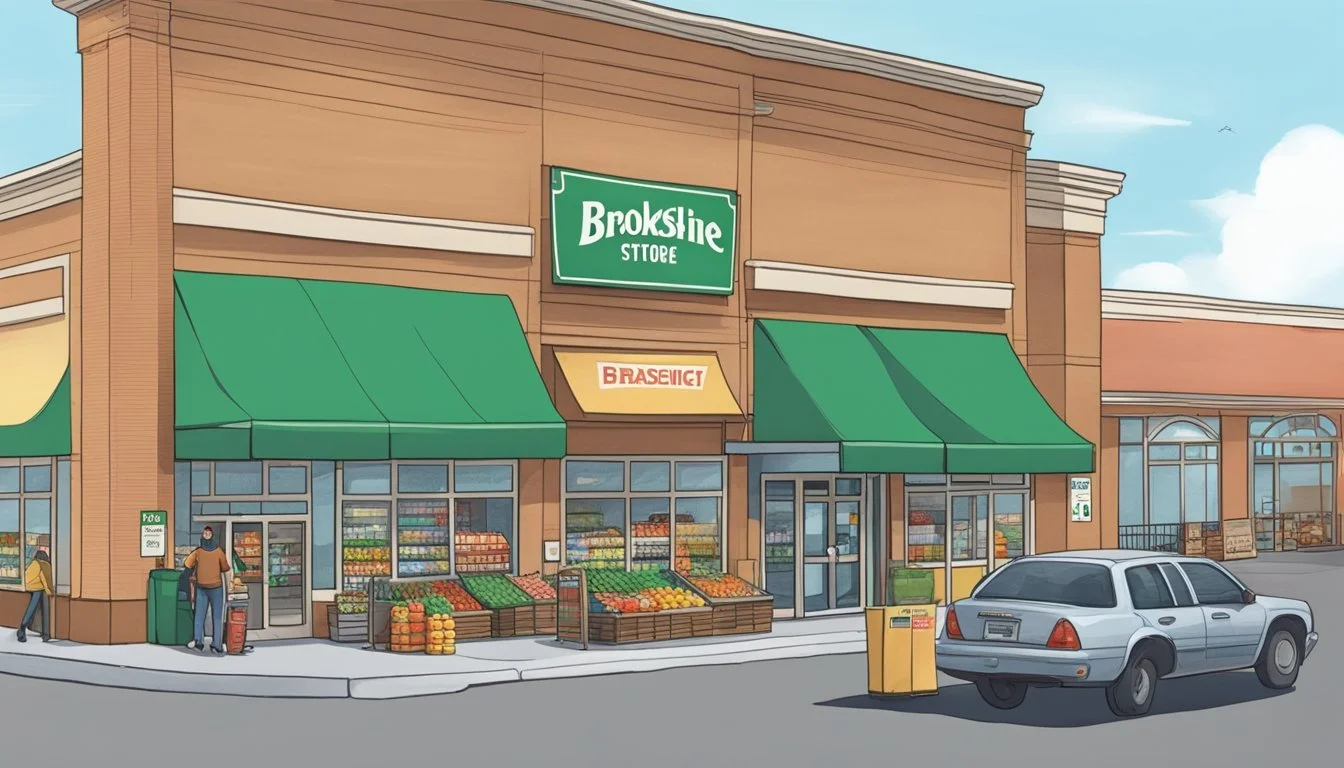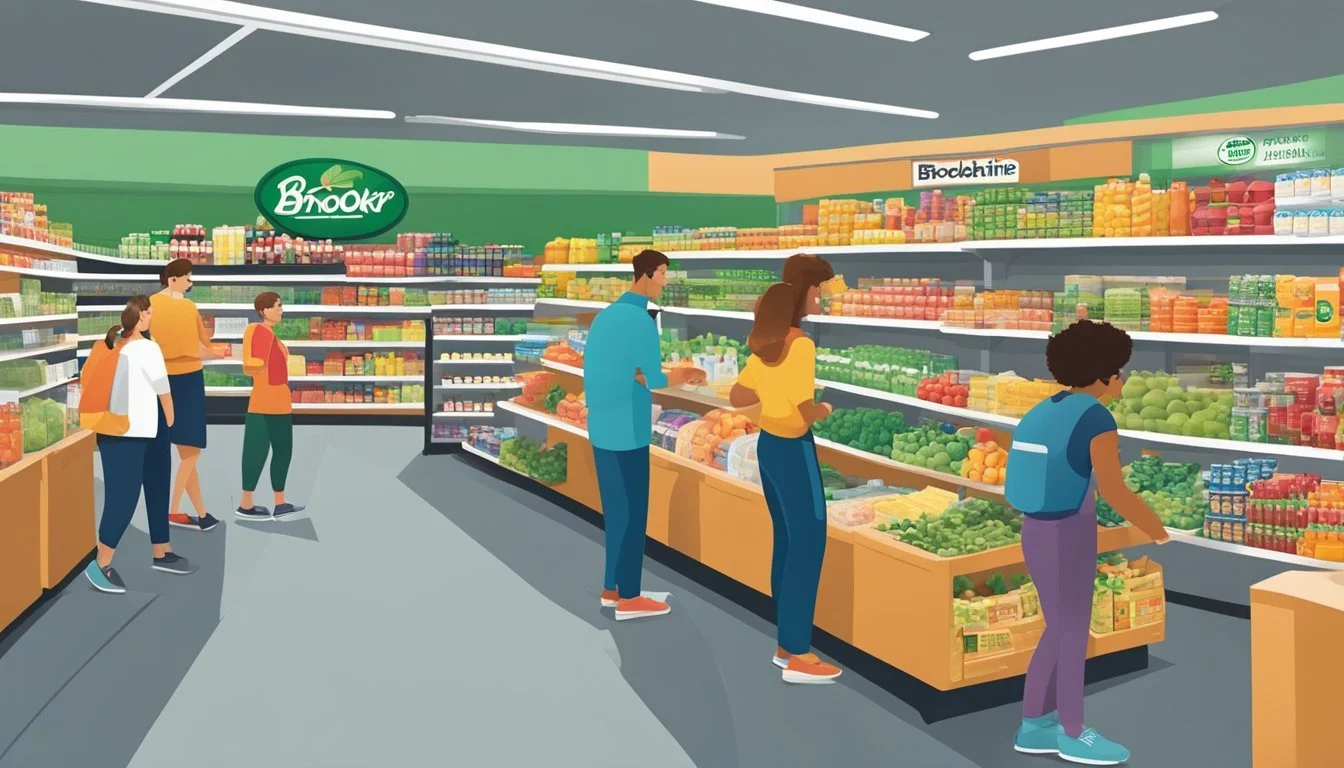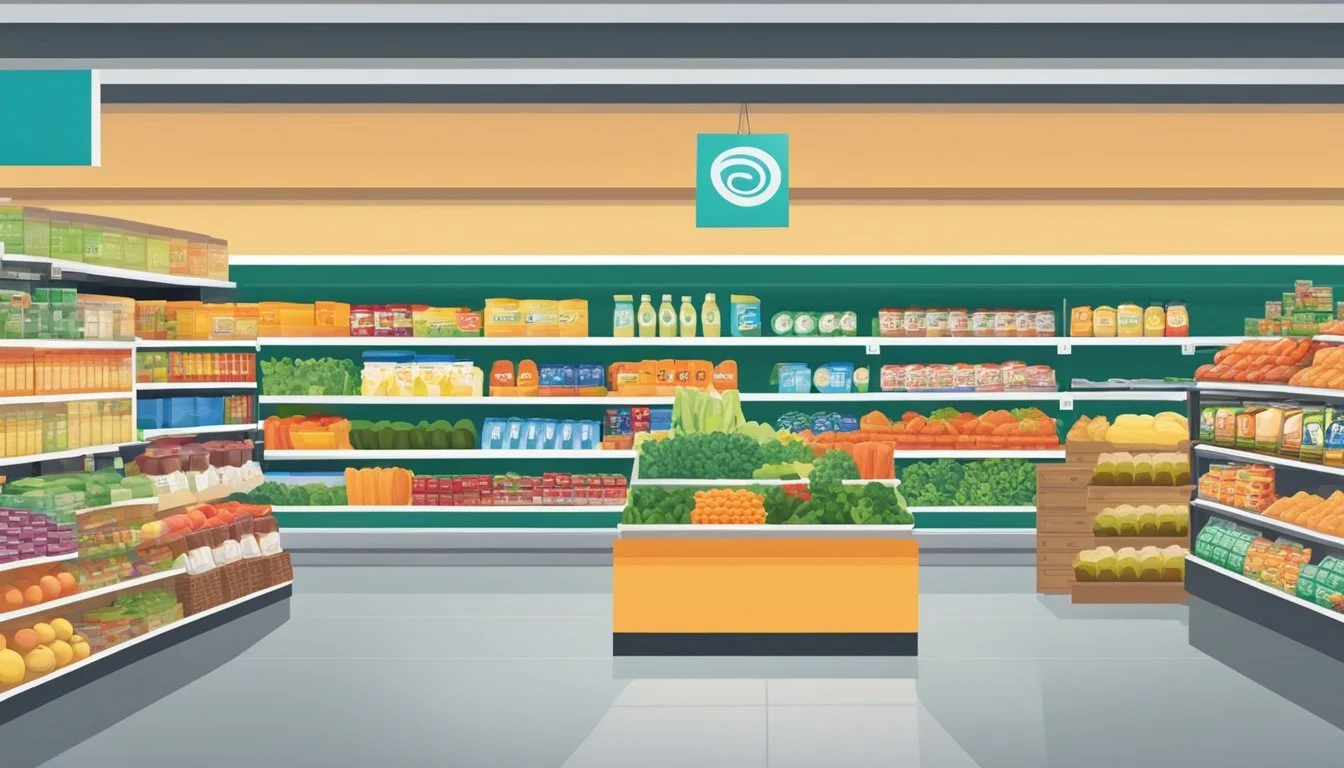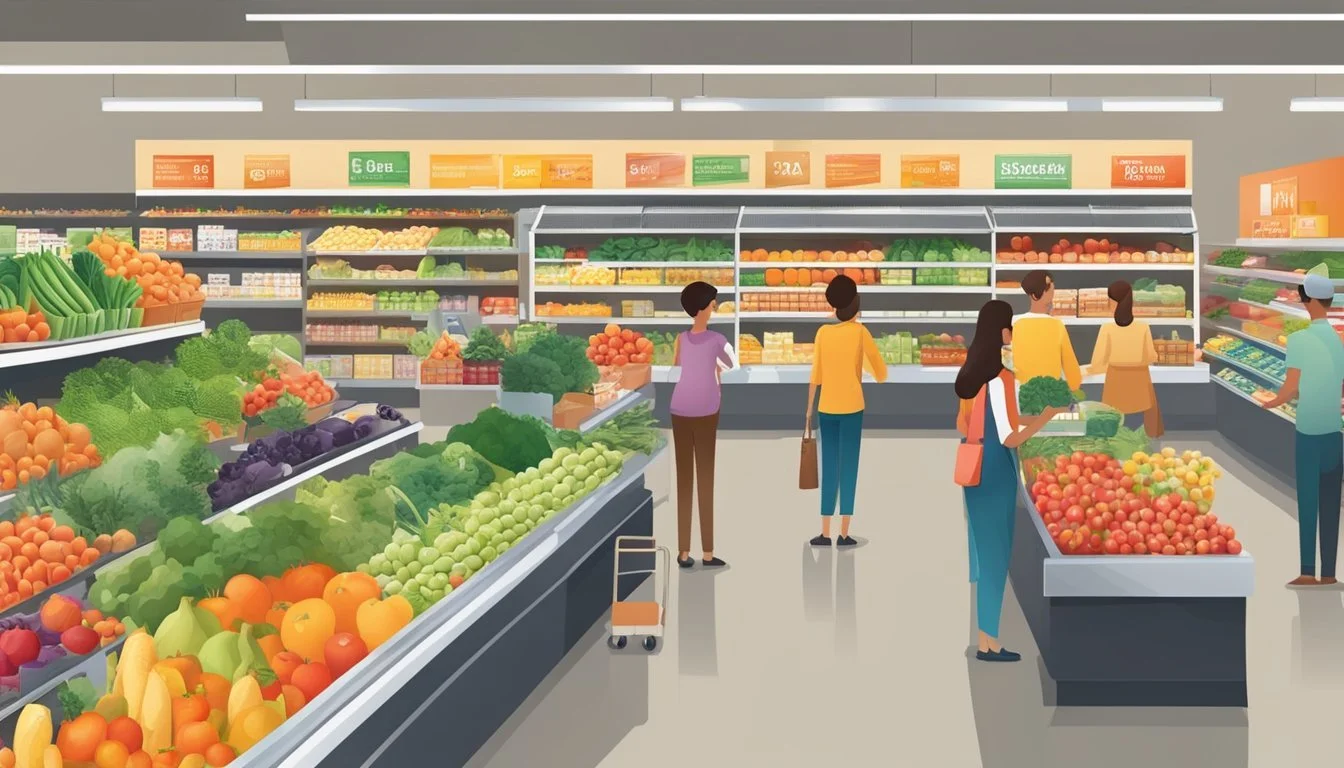Brookshire Grocery Company vs Lucky Supermarkets
A Comprehensive Comparison of Price, Quality, and Selection
Brookshire Grocery Company and Lucky Supermarkets are two well-known grocery chains in the United States, each with its own unique history and regional presence. Brookshire's, founded in 1928 in Tyler, Texas, has grown to operate over 200 stores across four states. Lucky Supermarkets, established in 1935 in San Leandro, California, has undergone several ownership changes and is now operated by different companies in different regions.
When comparing Brookshire Grocery Company and Lucky Supermarkets, regional availability and customer preferences play significant roles in determining which store is better for individual shoppers. Brookshire's has a strong presence in the Southern United States, particularly in Texas and Louisiana, while Lucky Supermarkets primarily serves customers in Northern California and Utah.
Both chains strive to provide quality products and customer service, but their offerings and store atmospheres may differ. Shoppers often consider factors such as product selection, pricing, store cleanliness, and convenience when choosing between grocery stores. Personal experiences and local reputation can also influence which chain customers prefer in areas where both operate.
History and Background
Brookshire Grocery Co and Lucky Supermarkets both have deep roots in American retail history. These companies emerged from humble beginnings to become significant players in the grocery industry, each carving out a unique path.
Origins of Brookshire Grocery Co
Wood T. Brookshire founded Brookshire Grocery Co in 1928 in Tyler, Texas. The company started as a small 25x100-foot store on Tyler's downtown square. Initially part of Brookshire Brothers, the company split in 1939 to form its own entity.
Wood T. Brookshire, along with his brothers, built a local chain in east Texas. The company's growth was steady, focusing on family values and customer service. Brookshire Grocery Co remained family-owned, with subsequent generations continuing Wood T. Brookshire's legacy.
By the 1950s, the company had expanded to multiple locations across east Texas. Their commitment to community involvement and employee satisfaction became hallmarks of their business model.
Lucky Supermarkets' Founding Journey
Lucky Supermarkets began its journey in 1935 in San Leandro, California. The company was founded during the Great Depression, a challenging time for new businesses.
Lucky quickly gained popularity for its innovative approach to grocery retail. They introduced concepts like self-service and clearly marked prices, which were revolutionary at the time.
The company expanded rapidly across California in the following decades. By the 1960s, Lucky had become a major player in the West Coast grocery market.
In 1998, Lucky's parent company, American Stores, was acquired by Albertsons. This led to the temporary disappearance of the Lucky brand. However, the name was later revived in some markets, demonstrating the enduring strength of the Lucky brand.
Geographical Presence
Brookshire Grocery Company and Lucky Supermarkets have distinct regional footprints in different parts of the United States. Brookshire's has expanded across multiple Southern states, while Lucky Supermarkets maintains a focused presence in California.
Brookshire's Expansion in the Southern United States
Brookshire Grocery Company operates over 200 stores across four states. Texas serves as the company's primary market, with a strong presence in East Texas where it was founded. The retailer has also established locations in Louisiana and Arkansas.
Brookshire's expansion includes multiple store banners. These include:
Brookshire's
Super 1 Foods
Spring Market
In 2022, Brookshire's acquired Reasor's Markets, adding 17 locations in Oklahoma to its portfolio. This acquisition marked Brookshire's entry into a fourth state, further extending its Southern U.S. footprint.
Lucky Supermarkets' Regional Footprint
Lucky Supermarkets maintains a focused regional presence in Northern California. The chain operates primarily in the San Francisco Bay Area and surrounding regions.
Lucky Supermarkets has approximately 70 locations across its California market. These stores serve communities in counties such as:
Alameda
Contra Costa
San Francisco
Santa Clara
Unlike Brookshire's multi-state expansion, Lucky Supermarkets has concentrated on deepening its presence within its existing market area. This strategy allows Lucky to maintain a strong local brand identity in Northern California.
Product Range and Quality
Brookshire Grocery Company and Lucky Supermarkets offer diverse product selections with varying quality levels. Both chains prioritize fresh foods and house brands, but differ in their specific offerings and sourcing practices.
Fresh Produce and Meat Selection
Brookshire's emphasizes locally-sourced produce and high-quality meats. Their stores feature expansive produce departments with a wide variety of fruits and vegetables. The company partners with regional farmers to provide customers with fresh, seasonal options.
Brookshire's meat counters offer USDA Choice beef and premium pork cuts. They also carry organic and free-range poultry options. Many locations have in-store butchers who can provide custom cuts on request.
Lucky Supermarkets, while smaller in scale, maintains a solid selection of fresh produce. They focus on affordability, often featuring competitive prices on staple fruits and vegetables. Their meat departments offer standard cuts and occasional specialty items.
Private Labels and Exclusive Brands
Brookshire's has developed several private label brands. These include "Food Club" for pantry staples and "Goldenbrook Farms" for dairy products. Their "Full Circle Market" line offers organic and natural options across various categories.
The company also carries exclusive regional brands, supporting local food producers. This approach provides customers with unique products not found in other chains.
Lucky Supermarkets' private label offerings are more limited. They focus on providing budget-friendly alternatives to national brands. Their store brands cover essential grocery categories but may not extend into specialty or gourmet items.
Service and Shopping Experience
Brookshire Grocery Company and Lucky Supermarkets prioritize customer satisfaction through distinct approaches to service and store environments. Their efforts focus on creating positive shopping experiences tailored to their respective customer bases.
Customer Service Standards
Brookshire Grocery Company emphasizes personalized service. Employees receive training to assist customers efficiently and courteously. The company implements a "plus-one" service philosophy, encouraging staff to go above and beyond basic expectations.
Lucky Supermarkets takes a more relaxed approach. Their employees aim to be helpful without being intrusive. The chain focuses on quick checkouts and well-stocked shelves to enhance convenience.
Both stores offer carry-out services for customers who need assistance with their groceries. Brookshire's provides specialized services like custom cake orders and party platters, while Lucky's streamlines its offerings for faster shopping trips.
Store Cleanliness and Layout
Brookshire's stores maintain high cleanliness standards. Regular cleaning schedules ensure spotless floors, shelves, and restrooms. The layout features wide aisles and clear signage, making navigation easy for shoppers.
Lucky Supermarkets also prioritize cleanliness but with a more practical approach. Their stores are tidy and functional, focusing on efficiency rather than ambiance. The layout is designed for quick shopping, with popular items placed strategically for easy access.
Both chains organize products logically, grouping similar items together. Brookshire's tends to have more elaborate displays, especially for seasonal items. Lucky's keeps displays simple and focused on value, often highlighting sale items at the ends of aisles.
Consumer Reports ratings indicate that customers generally find both stores clean and well-organized, with Brookshire's scoring slightly higher in overall shopping experience.
Pricing and Value for Money
Brookshire Grocery Company and Lucky Supermarkets employ distinct pricing strategies and value propositions for customers. Their approaches to everyday pricing, promotions, and loyalty programs shape the overall shopping experience and potential savings.
Comparison of Everyday Prices
Brookshire Grocery Company typically offers competitive prices on staple items and store-brand products. Their pricing strategy aims to balance affordability with quality, particularly in their produce and meat departments.
Lucky Supermarkets, on the other hand, often positions itself as a more budget-friendly option. They frequently price their items slightly lower than Brookshire, especially on frequently purchased goods.
Both chains adjust their pricing based on local market conditions and competition. In areas where they compete directly, the price differences may be minimal.
Discounts, Promotions, and Loyalty Programs
Brookshire Grocery Company runs weekly sales and offers digital coupons through their mobile app. Their "Thank You Card" program provides personalized discounts and fuel rewards based on shopping habits.
Lucky Supermarkets emphasizes their "Lucky You" rewards program, which offers points on purchases that can be redeemed for discounts. They also feature regular "Lucky Deals" promotions on select items.
Both stores provide seasonal sales and holiday specials. Lucky tends to offer more frequent promotions, while Brookshire focuses on targeted discounts for loyal customers.
Neither chain matches the bulk pricing of Costco or the extreme discount model of Aldi, but they aim to provide value through a mix of competitive pricing and tailored promotions.
Corporate Responsibility and Community Involvement
Brookshire Grocery Company and Lucky Supermarkets both emphasize giving back to their communities and implementing sustainable practices. Their initiatives focus on supporting local organizations and reducing environmental impact.
Sustainability Initiatives
Brookshire Grocery Company has implemented several eco-friendly measures in its operations. The company uses energy-efficient lighting and refrigeration systems in its stores to reduce electricity consumption. They also have a recycling program for cardboard, plastic, and other materials.
Lucky Supermarkets, owned by Save Mart, has launched a "One Less Bag" campaign to encourage customers to use reusable bags. The chain has also invested in solar panels for some locations to decrease reliance on non-renewable energy sources.
Both companies have made efforts to source products locally when possible, reducing transportation emissions and supporting regional farmers.
Local Community Support
Brookshire Grocery Company, led by CEO Brad Brookshire, donates to organizations focused on hunger relief, education, health, and family wellbeing. The company sponsors food drives and provides emergency assistance during natural disasters.
Their employee volunteer program encourages staff to participate in community service activities. Brookshire's also offers scholarships to students in their operating areas.
Lucky Supermarkets partners with local food banks to combat hunger. They organize fundraising events and donate surplus food to charitable organizations. The chain supports youth sports programs and sponsors community events in neighborhoods where their stores are located.
Both companies prioritize hiring locally, providing job opportunities for residents in the areas they serve.
Innovations and Future Prospects
Brookshire Grocery Company and Lucky Supermarkets are embracing technological advancements and strategic growth plans to stay competitive in the evolving retail landscape.
Technological Advancements in Retail
Brookshire Grocery Company has invested in AI-powered systems to enhance its omnichannel platforms. The company utilizes generative AI for personalized push notifications and one-to-one customer experiences online. This technology helps tailor product recommendations and promotions to individual shoppers.
Lucky Supermarkets has implemented self-checkout kiosks and mobile payment options to streamline the purchasing process. The chain also uses data analytics to optimize inventory management and reduce waste.
Both retailers are exploring automation in their distribution centers to improve efficiency and reduce costs. These innovations aim to create a more seamless shopping experience for customers while boosting operational effectiveness.
Strategic Growth and Expansion Plans
Brookshire Grocery Company recently acquired Reasor's, an Oklahoma-based chain, expanding its presence to over 200 stores across four states. This move positions the company for future growth in the region and demonstrates its commitment to strategic expansion.
Lucky Supermarkets, as part of The Save Mart Companies, focuses on strengthening its foothold in existing markets. The chain emphasizes renovating current stores and enhancing its product offerings to attract and retain customers.
Both companies are adapting their store formats to meet changing consumer preferences. This includes developing smaller, convenience-focused locations in urban areas and expanding their online grocery pickup and delivery services.
Comparative Analysis
Brookshire Grocery Company and Lucky Supermarkets differ in their approaches to quality, service, and pricing. These key factors shape the shopping experience for customers at each chain.
Brookshire vs. Lucky: Which Leads in Quality and Service?
Brookshire Grocery Company emphasizes customer service and product quality. Their employees undergo extensive training to provide attentive assistance. The chain offers a wide selection of fresh produce and high-quality store brands.
Lucky Supermarkets focuses on efficiency and convenience. They typically have shorter checkout lines and well-organized store layouts. Lucky's product range may be more limited, but they maintain consistent quality standards across their offerings.
Both chains prioritize cleanliness and food safety. Brookshire tends to have more specialty departments like bakeries and delis. Lucky often provides self-checkout options for faster transactions.
Pricing Battle: Comparing Cost-Effectiveness
Brookshire Grocery Company employs a balanced pricing strategy. They offer competitive prices on staple items while maintaining higher margins on specialty products. Their loyalty program provides additional savings for regular customers.
Lucky Supermarkets generally positions itself as a more budget-friendly option. They frequently run sales and promotions to attract price-conscious shoppers. Lucky's store brand products are often priced lower than national brands.
Both chains adjust prices based on local market conditions. Brookshire may have slightly higher overall prices but offers more premium options. Lucky focuses on keeping everyday prices low across most product categories.
Pricing can vary by location and season for both retailers. Shoppers may find better deals on different items at each store, depending on current promotions and inventory levels.
Consumer Feedback and Reputation
Brookshire Grocery Company and Lucky Supermarkets have distinct reputations shaped by customer experiences and industry recognition. Their standing among consumers and within the grocery sector provides insights into their strengths and areas for improvement.
Online Reviews and Ratings
Brookshire's appears in Consumer Reports' evaluations of grocery stores, indicating its significance in the market. However, it ranks lower compared to other supermarkets, coming in at 48th place according to one list. This suggests room for enhancement in customer satisfaction.
Lucky Supermarkets, owned by The Save Mart Companies, is not prominently featured in the available search results. This lack of visibility in major consumer surveys may indicate a more regional focus or lower national profile.
Customer reviews on various platforms offer a mixed picture for both chains. Shoppers often praise Brookshire's for its clean stores and friendly staff, while some criticize pricing.
Industry Awards and Recognitions
Brookshire Grocery Company has gained recognition in industry rankings. Progressive Grocer, a respected trade publication, listed Brookshire's in its Top 100 Food Retailers in North America. The company's reported revenue of $3,800 million demonstrates its substantial market presence.
Lucky Supermarkets' parent company, The Save Mart Companies, has received accolades for sustainability efforts and community involvement. However, specific awards for Lucky Supermarkets are not readily apparent in the provided search results.
Both chains have shown growth, with Brookshire's expanding through acquisitions and Lucky benefiting from The Save Mart Companies' strategic developments in the western United States.
Conclusion
Brookshire Grocery Company and Lucky Supermarkets both offer unique shopping experiences for customers. Brookshire's focuses on community involvement and a personalized touch in smaller markets. Lucky emphasizes low prices and a no-frills approach.
Value-conscious shoppers may prefer Lucky's everyday low pricing strategy. Those seeking a more curated selection of local and specialty products might gravitate towards Brookshire's.
The ideal choice depends on individual priorities. Customers valuing price above all else will likely prefer Lucky. Those willing to pay slightly more for enhanced service and selection may favor Brookshire's.
Both chains strive to meet the needs of their target demographics. Lucky excels in urban areas with price-sensitive shoppers. Brookshire's thrives in smaller communities desiring a hometown feel.
Ultimately, both companies fulfill important roles in their respective markets. The "better" option comes down to personal preferences regarding price, selection, and shopping atmosphere.










